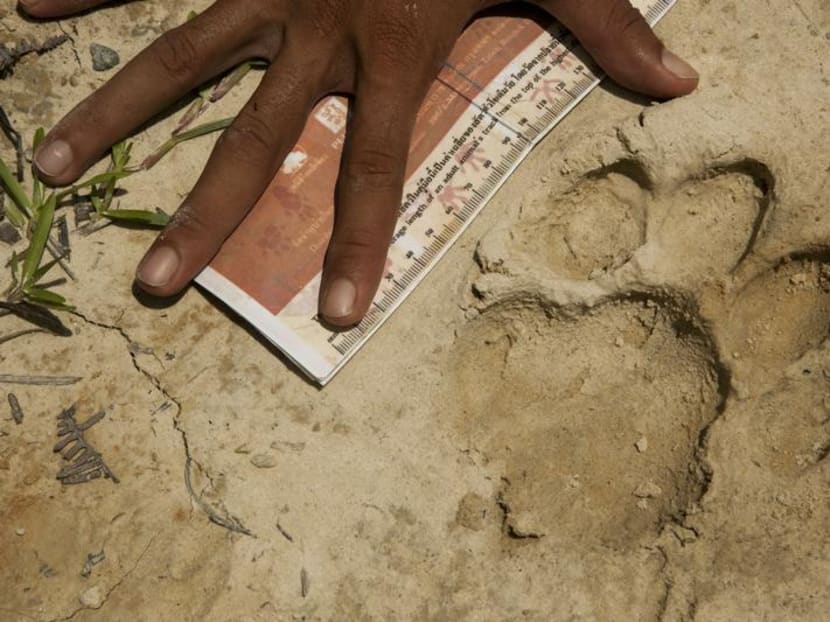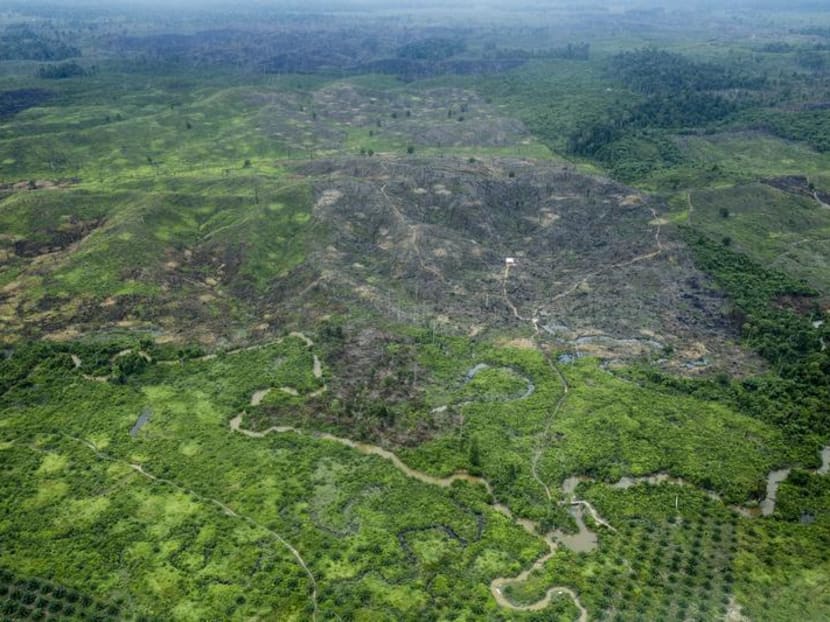Greenpeace, Wilmar clash over palm oil supply chain
SINGAPORE — Greenpeace has singled out Wilmar International, the world’s biggest palm oil trader headquartered in Singapore, for not doing enough to ensure its supplies do not come from illegally-cleared forests in Indonesia which are home to Sumatran tigers and other wildlife.


SINGAPORE — Greenpeace has singled out Wilmar International, the world’s biggest palm oil trader headquartered in Singapore, for not doing enough to ensure its supplies do not come from illegally-cleared forests in Indonesia which are home to Sumatran tigers and other wildlife.
The environmental campaigning group pointed this out in a report it released yesterday calling for the palm oil industry to stop destroying tiger habitats.
Greenpeace’s allegations against Wilmar and its identification of several multinational trade partners — including Arnott’s Biscuits, Colgate-Palmolive and Mondelez International (formerly known as Kraft Foods) — drew a robust response from the agri-business giant.
Besides listing, in a six-page statement, the various measures it takes to oversee its supply chain, Wilmar pointed out that it had earlier told Greenpeace it was reviewing its business strategy and practices with certain international supply-chain experts. Greenpeace was even invited to be part of the review process when its plans are finalised, a company spokesperson said, who added that it was “deeply disappointed” by the non-government organisation’s decision to release the report nonetheless.
But Mr Bustar Maitar, Greenpeace’s Forest Campaign Head, told reporters yesterday that Wilmar had yet to express a strong commitment to cut ties with suppliers behind deforestation. He added that he hoped Wilmar would speed up improvements to its policies.
According to Greenpeace’s report — Licence to Kill: How Deforestation for Palm Oil is Driving Sumatran Tigers toward Extinction — Wilmar was documented buying oil palm fruit bunches from Tesso Nilo National Park between September and October through an agent supplying its mills. The area in Sumatra, where there are elephants and tigers, was illegally cleared, it said.
Wilmar subsidiary PT Agroindo Indah Persada also cleared areas within its concession deemed of High Conservation Value (HCV), including areas that serve as a corridor for the Sumatran tiger and other vulnerable species, it added. Another company with ties to Wilmar, PT Jatim Jaya Perkasa, had fire scars recorded in areas of deep peat — it is illegal to clear peatland over 3m deep — in its concession in August, said Greenpeace. It cited confidential information that indicated Wilmar had processed palm oil from this company.
In rebuttal, Wilmar said it “minimises” the risk of buying crops “established on unclear land status” by reminding staff to only go to legal sources. It also records the global positioning system coordinates of suppliers’ farms, which it overlays with government land use maps and that of the World Wide Fund for Nature, to exclude suppliers that fall within contentious areas. Trucks carrying crops from contentious areas are also monitored, it added.
Wilmar also said it ensures HCV areas are protected by adhering to the Roundtable on Sustainable Palm Oil’s (RSPO) new planting procedures. It also gives strict instructions to contractors and makes sure its land development team only approves areas that are within legal boundaries and not identified as of HCV.
“We do not see how PT Agroindo Indah Persada could have cleared any HCV areas intentionally,” said Wilmar. Any HCV areas accidentally cleared will be restored, it added.
Burning of peat land by Jatim Jaya Perkasa also appeared to be accidental, said Wilmar, who noted that the coordinates used by Greenpeace were at the edge of the company’s concession where there has been planting.
A plan to manage its water system has been submitted to the RSPO and Wilmar has advised the company that it should not receive fruit bunches from local communities that “establish oil palm holdings by the use of fire”.
Meanwhile, Mr Bustar said Greenpeace has written to over 250 companies that use palm oil — including the corporations cited as Wilmar’s trade partners — and most have said they rely on RSPO certification to meet their sustainability commitments. But RSPO standards are not enough to stop deforestation and peatland conversion, said Greenpeace in its report.
He also pointed out that Greenpeace is not calling for a boycott of palm oil products but wants consumers to challenge corporations for fully traceable supply chains and to support companies with no-deforestation policies. It is also open to discussions with governments, he said.
Between 2009 and 2011, 382,000 hectares of tiger habitat — most of it lowland forests which many other species also depend on — were cleared and as few as 400 wild tigers are thought to remain in Sumatra. NEO CHAI CHIN






